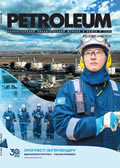30 years of TCO in Kazakhstan
Tengiz is in My Destiny. TCO Veterans Share Memories on the Eve of the Anniversary
TCO veterans share memories on the eve of the anniversary
Myrzakuat Karabalin, retired on 03/29/2022, last position – Manager of Planning and Economic Analysis of the Field Development Department of Tengizchevroil LLP
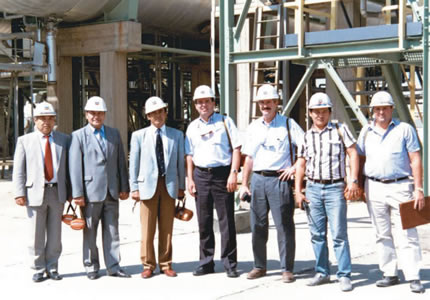 In the photo from left to right: Mendygali Sappayev – at that time, akim of the Zhylyoi district, where Tengiz is located; Ravil Cherdabayev – the first Director of TCO from the Kazakhstani side; Sagat Tugelbayev – at that time, akim of the Atyrau region; Morley Dupre – the first General Director of TCO; Dale Wooddy – TCO General Production Manager; Myrzakuat Karabalin – Deputy Production Operation Manager; John Engelhard – TCO Production Operation Manager
In the photo from left to right: Mendygali Sappayev – at that time, akim of the Zhylyoi district, where Tengiz is located; Ravil Cherdabayev – the first Director of TCO from the Kazakhstani side; Sagat Tugelbayev – at that time, akim of the Atyrau region; Morley Dupre – the first General Director of TCO; Dale Wooddy – TCO General Production Manager; Myrzakuat Karabalin – Deputy Production Operation Manager; John Engelhard – TCO Production Operation ManagerWhen and how did you get to Tengiz?
On July 30, 1987, after graduating from the Gubkin Moscow Institute of Oil and Gas, I was hired as the fifth-category oil and gas pilot production unit operator at the NGDU Tengizneft.
Tell us about the most memorable episode of your work at TCO.
There are probably a couple of hundred such episodes, but I will mention three of them, one for each period of work at Tengiz, and not only at TCO (it was not created from anything and out of nowhere!). Since the 70s, Tengiz has been mastered by specialists from all over the Soviet Union: Volgograd, Grozny, Astrakhan, Orenburg, Tatarstan, and Moscow. Germans, Canadians, Americans, Japanese, and Hungarians carried out deliveries, construction, and installation.
During the construction of the field, during the preparation for the launch, we were very sensitive to the installation and assembly of equipment, controlled every passage of welding seams, literally touched every nut… And so the launch took place, the reservoir oil reached the slug catcher in front of the plant, and then the handwheel of the 24-inch ball valve at the tank inlet jammed! It won't open! The pressure is rising! And then, before my eyes, the person responsible for this object, one of the Samara commissioning engineers, grabs a sledgehammer and hits the handwheel! I'm fainting! But the valve started to open, and the oil flowed to the plant!
As for the TCO period, there were a lot of memorable events. But perhaps the most important thing is that literally from the first day of the TCO creation, the management immediately began to provide employees with personal protective equipment, overalls, safety shoes, and other necessary means as much as possible and in full. And also, all employees, without exception, were provided with rich and high-quality food!
What place does Tengiz occupy in your life? What have you gained by working on it, what have you learned?
What is Tengiz in my life – this is my life. The wealth of Tengiz is people! From the very first days, there was such an atmosphere in TCO that almost any employee felt so liberated and internally free that he instinctively began to transfer these feelings outside the enterprise, where, unfortunately, a slightly different atmosphere and other relationships still prevailed! And the people, of course, were stunned by this behavior of TCO workers.
What did the Chevron team bring to our professional environment? First of all, the highest level of production management, using the most modern technologies, machinery, equipment, and tools, reached by other enterprises decades later. Managing resources and optimizing production allows you to achieve the highest production performance! And, of course, the highest level of training, both professional, linguistic, behavioral, and communication!
It would be very interesting to know: what have we been able to bring to expats?
And in conclusion, I will say that I, like hundreds of thousands of people around, was lucky – Tengiz allowed us to comfortably live through the most challenging times in our lives, to see the whole world, to communicate with thousands of different people of different mentality, language, culture, traditions. I think all of us, and the country as a whole, are really lucky that Tengiz exists (with a 300-million-year-old ready-made product that has been gushing for many decades), and Tengizchevroil, having slightly more than three thousand permanent employees (which is only 0.02% relative to the country's 19 million population), provides more than 30% of the country's oil reserves and more than 10% of the GDP of the Republic of Kazakhstan!
Mukhit Abilgaziev, retired
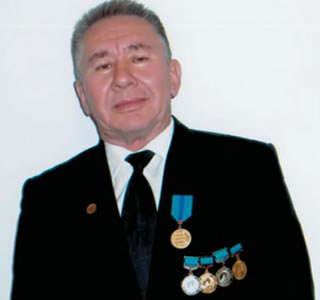 Mukhit Abilgaziev
Mukhit AbilgazievWhen and how did you get to Tengiz?
I have been at Tengiz since 1986 when I got a job as a master in oil and gas production at NGDU Tengizneft. After the formation of the joint venture, I moved to work at TCO, where I worked until 2017. I retired from the position of head of the regulatory department.
Tell us about the most memorable episode of your work in TCO.
Of course, the most vivid impression was the commissioning of the field. Also, after the arrival of foreigners, I was shocked in the good sense of the word by the work of my American colleagues who solved complex issues without leaving the office or looking away from the computer.
What place does Tengiz occupy in your life? What have you gained by working on it, what have you learned?
Tengiz taught me everything I had achieved today. I found colleagues at Tengiz and friends for the rest of my life. I learned to live and understand other people. I am now engaged in social work, and many people turn to me for advice, and I am happy to help and support them, using the acquired experience and skills. I have learned to trust people and treat them the way I would like them to treat me.
Anuarbek Dzhakiev, entrepreneur, former Deputy General Director of TCO (2009-2016)
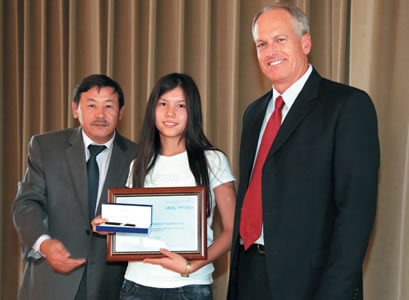 Left to Right: Anuarbek Dzhakiyev, TCO General Director Tim Miller
Left to Right: Anuarbek Dzhakiyev, TCO General Director Tim MillerWhen and how did you get to Tengiz?
I got to Tengiz in 1984 after finishing my studies at the Gubkin Moscow Institute of Oil and Gas.
Tell us about the most memorable episode of your work in TCO.
For me, this is the field launch, which happened in 1991. Before that, it was prepared for launch since 1986. Being a direct participant in those events, I remember well that significant day when at 6 p.m., the first well No. 8 was launched, the chain of the oil gathering system of the field was passed, including the group measuring station No. 15, the central field manifold and the slug-catcher, and the first oil finally reached the plant. These were the long-awaited moments of our work and our aspirations. From this moment, the countdown of the oil Tengiz began."
Eyewitnesses said that when the first peg was hammered in a festive atmosphere in the bare steppe, starting the construction of a gas processing complex in Tengiz, a huge steppe eagle landed on the only trailer in the entire endless steppe. Perhaps, the proud bird thus blessed our large construction site, which soon became a symbol of the economy and high production potential of the Republic of Kazakhstan.
What place does Tengiz occupy in your life? What have you gained by working on it, what have you learned?
I consistently worked my way up from an oil production operator to a site manager in 1999. I worked on a business trip to the USA for two years and six years in KazMunayGas. Then I returned to TCO as Deputy General Director and worked in this position for eight years.
My formation as a specialist and as a leader took place in Tengiz. Here I have adopted the experience of a Western company and approaches to doing business according to international standards. Mastered advanced technologies and equipment, broadened horizons, and gained leadership skills and experience.
Akhsangali Baimbetov, former Deputy General Director of TCO (2003-2005), a veteran of labor, holder of the Order of "Kurmet"
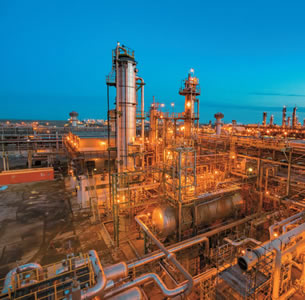
When and how did you get to Tengiz?
After graduating from the Kazakh Polytechnic Institute in 1984, according to the distribution, I was sent to the position of engineer-geologist to study deep wells in the Balykshinsky Exploration Drilling Department (BEDD) of the Embaneft production association. By that time, it, together with drilling crews for Nizhnevolzhskneft from Volgograd, was conducting large-scale prospecting and exploration work in Tengiz.
Tell us about the most memorable episode of your work in TCO.
While working in the field, the most memorable event was the accident at well No. 37 in 1985, which took over a year to liquidate. These were intense months of struggle with the fiery element and the selfless work of a massive team of drillers, paramilitary well-kill detachments who arrived from the Russian Federation and Ukraine, rescuers, and representatives of other professions.
The management of the liquidation of the consequences of the accident was entrusted to the operational headquarters headed by the First Deputy Minister of the Oil Industry of the USSR, Valery Igrevsky. His deputy was the General Director of Embanefti Bulekbai Sagingaliev. The release of an oil and gas mixture at this well announced to the whole world the discovery of a unique field in Western Kazakhstan, which aroused great interest among oil companies.
Another event forever imprinted in the memory is the commissioning of the Tengiz oil and gas complex on April 6, 1991. This day marked an achievement that was the result of the selfless, conscientious work of tens of thousands of people (geologists, geophysicists, drillers, operators, gas processors, builders, installers, road workers, drivers, etc.) who took part in the development of the field and the construction of infrastructure facilities.
On April 6, 1993, my colleagues and I were thrilled to learn about signing an agreement between the Republic of Kazakhstan and Chevron Corporation on establishing the Tengizchevroil joint venture. Since then, a new milestone in the development of not only the field, where modern equipment and technologies were introduced, but also us, Kazakhstanis, working at this enterprise. Every day and month, there were such events that significantly influenced the development of the country's economic potential and human capital and changed public consciousness. And there were a lot of such events!
What place does Tengiz occupy in your life? What have you gained by working on it, what have you learned?
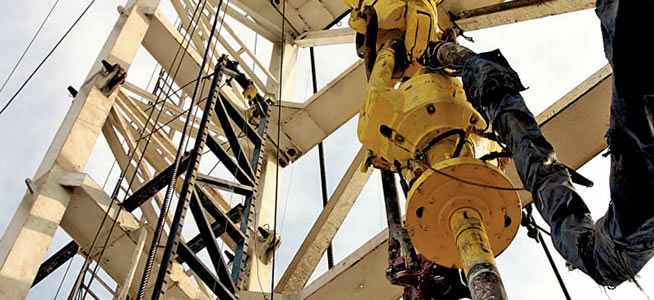
Speaking in simple human language, without pathos and excessive grandiloquence, Tengiz occupies a special place in my destiny. This is the brightest and most exciting part of our life, my colleagues and comrades, with whom I worked in such a wonderful team of like-minded people as NGDU Tengizneft. From 1986 to 1993, the department was headed by well-known oilmen as B.D. Elemanov, K.K. Kudabaev. N.U. Balgimbayev, the future Prime Minister of Kazakhstan, was the curator of all the work carried out in the field by the USSR Ministry of Oil and Gas Industry.
We are happy and proud that we, then 25-30-35-year-old guys, had the honor to complete the construction, arrangement, and commissioning of the Tengiz oil and gas complex, which today is one of the leaders in world oil production, in a short time, in just five incomplete years. It is rightfully called the locomotive of the Kazakhstani economy.
For more than 20 years, my production activity has been connected with the Tengiz project. The main thing I have gained during this time is a lot of loyal friends. I have met many good and interesting people –my local, American, Russian, and Chinese colleagues and many others with whom I maintain friendly relations.
What have you learned? If you compare me, a young specialist, a university graduate, and the one who answers your questions, you can probably say a lot. I want to take this opportunity to express my gratitude to all those with whom I have worked for many years, who selflessly transferred knowledge and experience, and those from whom understanding and support came. Thank you very much!
Bolat Yerniyazov, veteran of Tengiz
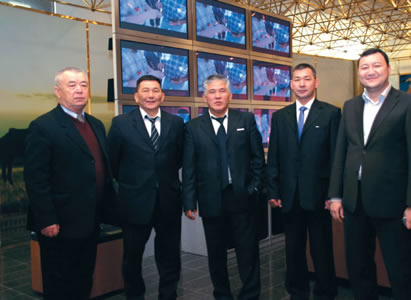 Bolat Yerniyazov
Bolat Yerniyazov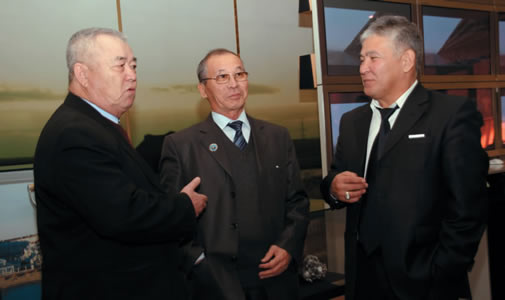 Bolat Yerniyazov
Bolat Yerniyazov
When and how did you get to Tengiz?
By transfer from NGDU Dossorneft I was sent to the newly created Tengizneft in 1987 as the oil production operator. Then I worked as a senior oil production foreman, our team launched the first well No. 8 on April 6, 1991. During the launch of the second well No. 107, Nurlan Balgimbayev, the future Minister of Oil, was with us at the well. We launched it at 2 a.m., under the floodlights of cars.
In 1993, after the establishment of the Tengizchevroil joint venture, I was elected chairman of the TCO trade union committee. Together with the management of the enterprise, we began to solve the issues of wages, loans, workwear and other social issues. A collective agreement was prepared and concluded, where the regional trade union of oil workers provided legal assistance.
Participated in a meeting of the Partnership Council in 1994 in Tengiz, where the TCO leadership and the TCO trade union were tasked with jointly resolving all social and labor issues, preventing labor conflicts.
Tell us about the most memorable episode of your work at TCO.
From the first days, the issues of providing food, overalls and equipment, training workers in safety, etc., were resolved. The TCO management promptly responded to all issues of a social and domestic nature. Taking care of employees in the company has always been in the first place.
General Director Morley J. Dupre, Director Ravil Cherdabaev and all the managers constantly met with employees and resolved all issues.
What place does Tengiz occupy in your life? What have you gained by working on it, what have you learned?
At Tengiz, he met with such leaders as Balgimbayev N.U., Yelemanov B.D., Kudabaev K.K., Makhoshvili Yu.A., M.Dupre, Kenzhetaev A.Zh. and others who coherently led their teams. All issues were resolved jointly.
Sports teams of the Tengizchevroil JV began to perform at competitions of the district, regional scale, national and All-Union tournaments. They took part twice in the international Issyk-Kul Games of Labor Collectives in Kyrgyzstan. I realized that all issues can be solved if the team is friendly and cohesive.
Rzabek Artygaliev, I am now on a well-deserved rest. The last position is General Manager for Government and Public Relations of Tengizchevroil
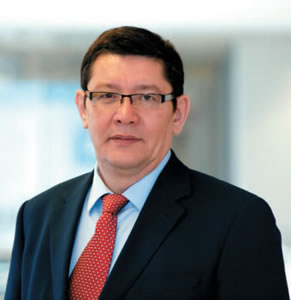 Rzabek Artygaliev
Rzabek Artygaliev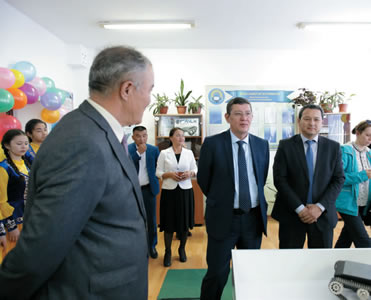 Rzabek Artygaliev
Rzabek Artygaliev
When and how did you get to Tengiz?
I saw Tengiz for the first time with my own eyes in 1983. At the time, drilling was beginning at the field, there were drilling rigs, and there was, one might say, nothing else, not even roads. This was long before the party congress adopted the fateful decision on it and other official documents on the development of the Tengiz field.
In the mid-1980s, I was lucky enough to participate in a large meeting. A huge event for us was the arrival to Tengiz of the Chairman of the Council of Ministers, practically the second person in the USSR, Nikolai Ryzhkov. He held a meeting in Kulsary, attended by then Chairman of the Kazakh Council of Ministers, Nursultan Nazarbayev, and many union and republic's ministers. Then a large-scale plan was launched to develop and commission the Tengiz field.
It was history in the making, where it all started. Later, in 1993, after the collapse of the Soviet Union, TCO was established. I remember that Morley J. Dupre was appointed the first director general, and Ravil Cherdabayev was appointed director from the Kazakhstani side (then this position was called that) by a special order of the President of the country.
Tell us about the most memorable episode of your work at TCO.
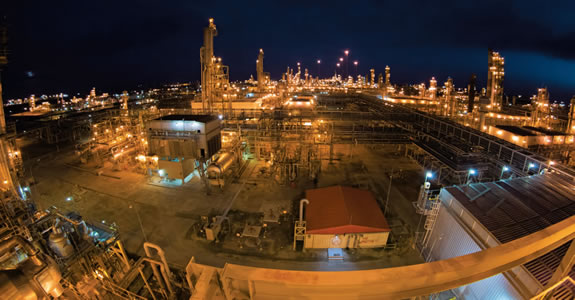
There are many of them in my memory from 22 years of work on the Tengiz project. My first impressions were when I was invited to work as a special projects manager. It was a project to register all land plots and real estate of TCO. Everything had to be put in order and legally formalized. The general manager of production Royce Elliott supervised us. Now he is already deceased. And I remember the first meeting under his leadership – he impressed me with his deep knowledge and understanding of the subject.
We had never seen before that they asked for your opinion more than they pushed their own. This was a big difference from the Soviet style of conducting meetings. The approach of Chevron Corporation was strikingly different from what we have seen so far. We were listened to very carefully, and we were given a lot of trust.
The second memorable episode was the sulfur question. It was specifically politicized and then rose to scale the impact on the environment. A special coordinating council was created. And with the work of this council, we proved that sulfur is still not a waste but a product, and a very valuable product. At that time, there were no norms or standards for sulfur in Kazakhstan. And by the coordinating council, all standards have been developed and introduced nationwide.
I remember the signing of a memorandum on the launch of a Future Growth Project in 2013. Its preparation was carried out for nine months in close conjunction with all government agencies and the public to consider all their wishes. And in the end, this memorandum worked, it showed its worth.
Another memorable episode, relatively recent. 2020, a pandemic when the whole country, even the entire world, did not know what to do. Lockdowns are everywhere. It was planned to take people out of Tengiz to avoid a catastrophic situation. We had to send about 27-28 thousand people home to relieve Tengiz from this pandemic.
And the last thing is, of course, the January events of 2022, which, I think, will remain in memory forever. They stirred up the whole of Tengiz, the entire Atyrau region, and the whole country. These were the most difficult times when people had to be persuaded not to touch the plant, not to touch the field, that it was very dangerous. I am grateful to people for their understanding. We managed to save both the plant and the field.
What place does Tengiz occupy in your life? What have you gained by working on it, what have you learned?
Tengiz, Tengizchevroil occupies a special place in my life. Working at TCO has given us a lot to understand the methods of working with foreign companies. I have learned a lot of useful things in personnel training and other matters. In building relations with state bodies, the local community, non-governmental organizations, and the media. Of course, I have gained a lot of experience in this regard.
What I particularly liked about Chevron was its approach to teaching people. Here everything is set to train employees, prepare and raise them professionally. Thanks to this, the people who worked at Tengiz are valued everywhere, all over the world. This is such a distinctive feature, Tengiz's seal of quality.
Zhenis Seitaev, veteran of Tengiz (August 1981 - December 2020)
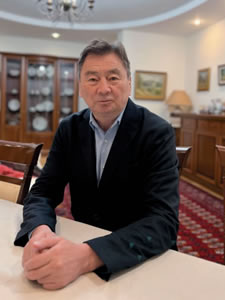 Zhenis Seitaev
Zhenis Seitaev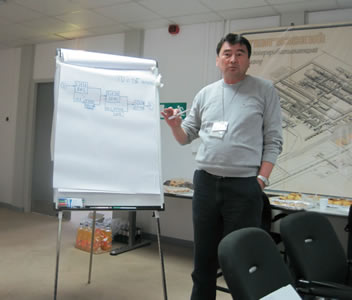 Zhenis Seitaev
Zhenis Seitaev
When and how did you get to Tengiz?
I first came to Tengiz in the summer of 1981, working as a mechanic for the maintenance of drilling rigs of the district engineering and technical service of the Balyksha Exploration Drilling Department (BEDD). It was the time when the BEDD opened a new heroic page in its history. In those years, it was called "The Battle for the big Tengiz oil."
The specifics of Tengiz are abnormal reservoir pressure and high hydrogen sulfide content, requiring more thorough training from drillers, special training on the nature of the Tengiz formation, and ensuring safety from the effects of hydrogen sulfide. Durable corrosion–resistant oil grade pipes – drill pipes, casing, and tubing – all were manufactured by the Japanese Sumitomo.
The most modern anti-blowout equipment of Cameron and Shaffer, equipment for testing wells of leading Western manufacturers. For their maintenance in 1983, a group was created to prepare, install, and maintain blowout equipment and well-testing equipment. I was appointed head of this group.
Tell us about the most memorable episode of your work.
In June 1985, as a result of the accident at well No. 37, the world received confirmation of the truly unprecedented power of Tengiz as a fiery column of burning oil and gas mixture with a height of more than 200 meters raged for almost 400 days. As the head of the group, my team (Akimov Bakhytzhan, Ospanov Amankos) and I were involved in the liquidation of the fountain.
What place does Tengiz occupy in your life? What have you gained by working on it, what have you learned?
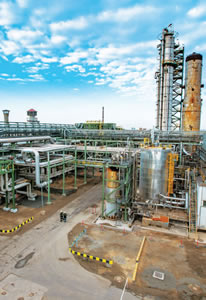
In April 1987, I was invited to work at NGDU Tengizneft as the head of the production service base being created. The best specialists of the oil Emba, together with the country's scientific centers, painstakingly worked on projects for the field's future development. According to their recommendations, the country's government found resources and signed contracts with leading Western design companies.
The contract for the design of the field, the purchase of equipment, and installation supervision were won by the Canadian Lavalin. We worked under the strict control of their representatives for almost five years, from the summer of 1988 to April 1993. For many of us, this was our first acquaintance with the Western organization of work. I was engaged in the organization of maintenance and installation of field equipment and training of specialists in the hire and repair shop.
On April 6, 1993, Tengizchevroil was established on the basis of NGDU Tengizneft and Tengiz GPP, and all of us, employees of these companies, became employees of TCO. At the initial stage of the work, it was interesting and somewhat unusual, to some extent difficult, especially for those who have already been established as a specialist and even more so as a leader. During the formation of TCO, two approaches collided: ours, the Soviet one, which taught us to solve issues quickly, using ingenuity, on the verge of violating safety standards and using improvised means, and the Western one, thorough preparation, clear, thought-out organization of work, while priority was given to ensuring the safety of people and production processes.
At first, we were somewhat wary of expats but hospitable and friendly; they were surprised that the national employees could do their work independently and demonstrated good technical preparedness and general literacy. I was amazed by the preparedness of the expats of the first landing, their openness, and friendliness – they were friendly, and there was always a "no problem" answer to any requests, and concrete actions followed.
I especially remember that during the formation of TCO, the immediate attention of the company's management was directed to solving everyday problems. The most painful issue of Tengiz was solved super quickly – providing builders and oil workers with food, high-quality workwear, improved housing conditions, hundreds of units of vehicles were purchased and imported, and jobs were equipped with first-class tools and equipment. A training department was created where everyone could study English, get professional computer training, and have greater technical skills.
I have worked at Tengiz for almost 40 years, 27 of them in TCO and on TCO projects. I witnessed how people grew and changed. Tengiz changed and evolved, gave me friends, and taught me to believe in myself, believe in people, and appreciate them.
Urynbai Dzhakiev, retired
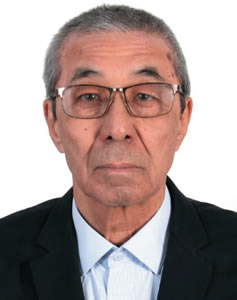 Урынбай Джакиев
Урынбай ДжакиевWhen and how did you get to Tengiz?
After graduating from the institute, from 1973 to 1987, I worked at NGDU Zhaikneft as an operator, shift supervisor, deputy chief, and then head of the field. In 1987, I was transferred to Tengizneftegaz, and in 1993, Tengizchevroil LLP was formed on its basis, where I was transferred. I worked as the head of the transport group of the field, the master of the group for the repair of downhole equipment, the instructor of the gas safety group, and the senior operator of the Tengiz-Kulsary gas pipeline.
Since December 2010, I have been on a well-deserved rest.
Tell us about the most memorable episode of your work at TCO.
I often recall the years of work at TCO, and some episodes have remained in my memory for a long time. Here are just a few of them.
When I worked as the head of the field transport group (FTG), I noticed that all transport group members worked in a narrow specialization – only in their specific categories B, C, D, and E. But after all, the group includes cars, trucks, buses, special equipment, trailers, and other equipment. One or another transport could often be idle due to the driver's lack of a permit to operate.
After considering the situation, I suggested that the management additionally train drivers for special admission to operation at the expense of TCO. And to make people more willing to do this, pay extra to the salary when the category is upgraded. My proposal was approved by the management, particularly Campbell Bowman and Lui Malaison, and implemented.
There is one comical incident connected with Campbell, which everyone still remembers with a kind laugh. So, one day the transport group was contacted on the radio and asked in Kazakh: "Kim bul, Kim bul?" ("who is this?"). Campbell answered at the other end and replied, "I'm listening!" thinking they were asking him. We worked with Campbell for five years with full mutual understanding, trouble-free, and observing labor safety until our group was disbanded. When Campbell left, TCO, as a sign of gratitude, organized a farewell party, where the company's leaders were present, and I was there at the invitation of my friend Campbell.
The management of FTG was remembered by the team and by the fact that those who distinguished themselves were encouraged with a cash bonus for holidays or anniversaries. There was a case when the author of the idea was also rewarded in cash for a hint to speed up the restoration of the air compressor, which had been standing for a whole week under repair.
What place does Tengiz occupy in your life? What have you gained by working there, and what have you learned?
After graduation, I worked in two NGDUs – Zhaikneft and Tengizneftegaz, which were later transformed into TCO. The management of Zhaikneft knew only work, and in TCO, in addition to work, there was time to have a good rest. Cultural evenings were organized almost every week, everyone was taught English, and vacations on the Caspian coast took place on Sundays.
TCO is the dream of any citizen of Kazakhstan, and it is prestigious to work there. Pensioners feel the full support of the company's management and appreciate it. So, pensioners receive financial assistance on the day of the formation of the TCO and the day of the oilman, and this helps us to improve our health and relax in the sanatorium. Every year TCO organizes a tea party for pensioners with the participation of the management, which is interested in our affairs and congratulates the anniversaries there.
I congratulate all employees and veterans of production on the 30th anniversary of the formation of TCO! All the best, good luck, happiness, and health!



